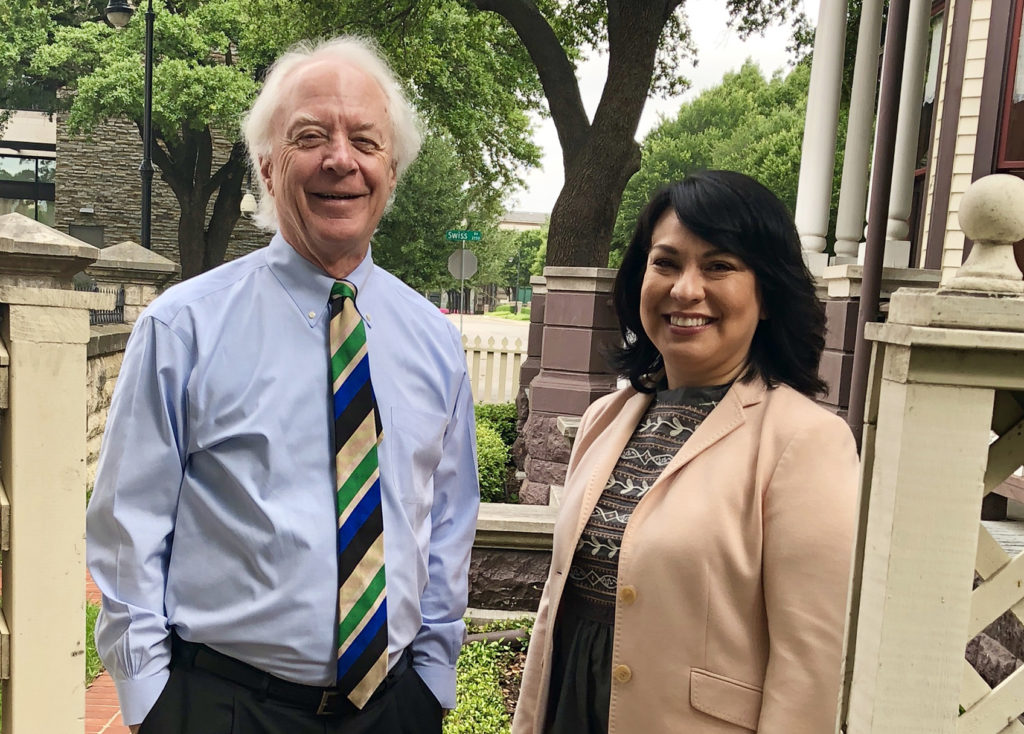Foundation to participate in “Smart Justice” program

.
Blog by Kristin Jenkins, President of the DFWHC Foundation
“Vision is the art of seeing what is invisible to others.” – Jonathan Swift
The numbers make the issue obvious, but they are still hard to believe.
Twenty to 25 percent of people in Texas county jails are diagnosed with mental illness, with annual costs to incarcerate them a staggering $450 million per year. In 2016, Dallas County-based hospitals had 427,157 visits from patients seeking care for mental health and substance misuse conditions with charges for these encounters totaling over $21 million. In addition, 32 percent of the patients were uninsured.
There are far too few long-term community treatment slots available to Dallas county residents suffering with mental illness, making the emergency department or the jail the only places many citizens receive care.
Meadows Mental Health Policy Institute saw the troubling situation as an opportunity for improvement. Andy Keller and John Petrila of the Institute began working together to attract partners from around the county to create the “Smart Justice” program. The initiative is designed to provide better care to patients with mental illness and to avoid the expense associated with repeated emergency room visits and arrests.
The task was not an easy one, as healthcare providers, emergency departments and criminal justice divisions were expected to share crucial information detailing the numbers of local patients suffering with mental illness.
“When presented with the Smart Justice program, we thought it made sense to coordinate the care of our emergency room patients with their mental health providers in real time,” said Catherine Oliveros, vice president of community health for Texas Health Resources. “We believe knowing a patient’s condition from their doctor’s point of view while the patient is seeking emergency care will improve the outcome – it’s as simple as that.”

John Petrila and Catherine Oliveros
Petrila, the vice president of adult policy at the Meadows Institute, is appreciative of the generous gifts to the Smart Justice program from the Caruth and Arnold Foundations. Additional partners include the Dallas-Fort Worth Hospital Council (DFWHC) Foundation, the Dallas County Sheriff’s Department, Loopback Analytics, Methodist Health System, the North Texas Behavioral Health Authority, Parkland Health & Hospital System and Texas Health Resources.
The real-time exchange of patient care information is happening now. Using a data exchange platform designed for Smart Justice patients, Meadows and Loopback Analytics provide a secure structure to share information that can stabilize patients quickly and efficiently. The DFWHC Foundation provides a neutral location for participants to evaluate the efficiency and to govern the data exchange.
Petrila anticipates bringing aboard several new providers and the Dallas County Jail over the next few months.
“We are also evaluating the effectiveness of the program and gaining feedback from our partners,” he said. “If the program proves to be productive, we will seek funding to continue as a regular part of the Dallas County process.”
Geographic expansion is also being considered, with interest having been expressed by healthcare providers in other North Texas locations including Tarrant County.
“The project is flexible,” said Alan Moore of Loopback Analytics. “The infrastructure can easily support an expansion of new participants and information.”
If the Smart Justice program is a success, it is expected to reduce healthcare costs.
“The entire state could benefit from coordinating the care of chronically mentally ill patients,” Petrila said. “Funding these programs for Medicaid participants, the uninsured and others can reduce cost and improve outcomes. Equally importantly, chronic care management for these individuals avoids the social costs of incarceration when they should be treated for mental illness. It’s a potential ‘win’ for everyone.”
For information, please do not hesitate to contact us at the DFWHC Foundation at info@dfwhcfoundation.org or 972-717-4279.
